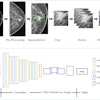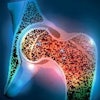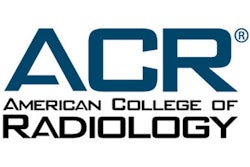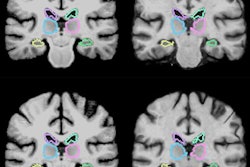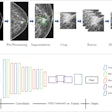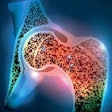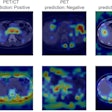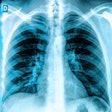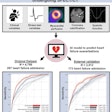
How can artificial intelligence (AI) algorithms best be developed and implemented in radiology? A new framework created by the American College of Radiology's Data Science Institute (ACR DSI) will show the way, according to an article published online May 5 in the Journal of the American College of Radiology.
Meant to serve as an AI ecosystem, this foundational framework delineates a standardized pathway for the development, deployment, and postmarket monitoring of AI algorithms in medical imaging and other radiological professions, according to Dr. Bibb Allen, PhD, of Grandview Medical Center in Birmingham, AL, and Dr. Keith Dreyer of Massachusetts General Hospital. The ACR DSI is now creating and prioritizing specific use cases based on this framework to expedite the creation and adoption of AI algorithms.
"Use cases that specify data elements for standardized algorithm training, testing, validation, clinical deployment, and postmarket monitoring will help ensure the safe and efficient introduction of AI models into widespread clinical practice," they wrote. Dreyer serves as the chief science officer at the ACR DSI, while Allen is the chief medical officer.
These use cases will define exactly how an AI algorithm will receive information -- such as images, data from electronic health records, structured data, or unstructured data -- from the clinical workflow, run the AI model, and provide specific outputs such as detection, classification, quantification, and prioritization of information to end users, according to Allen and Dreyer.
What's more, these use cases will also provide specific parameters for how AI algorithms will be trained, tested, and validated for regulatory approval and clinical use, as well as for how they will be deployed clinically within existing workflows and how their effectiveness can be monitored.
ACR DSI Data Science subspecialty panels -- with input from radiology specialty societies, industry developers, and academic and community practices -- will develop DSI use cases to prioritize those that will be most valuable to patients, practices, and health systems, according to the authors.
As an example of its efforts, the ACR DSI will shepherd processes for creating curated datasets for validating the algorithms for these specific use cases. These datasets, which will be hosted internally at the institute, could be used to provide a certification report for the U.S. Food and Drug Administration (FDA) premarket review process, according to the authors.
"The ACR is working with the FDA to pilot specific tools as part of the FDA's Medical Device Development Tool program that can be used for the creation and curation of training and testing datasets, algorithm validation, and monitoring algorithm performance in clinical practice," they wrote.


